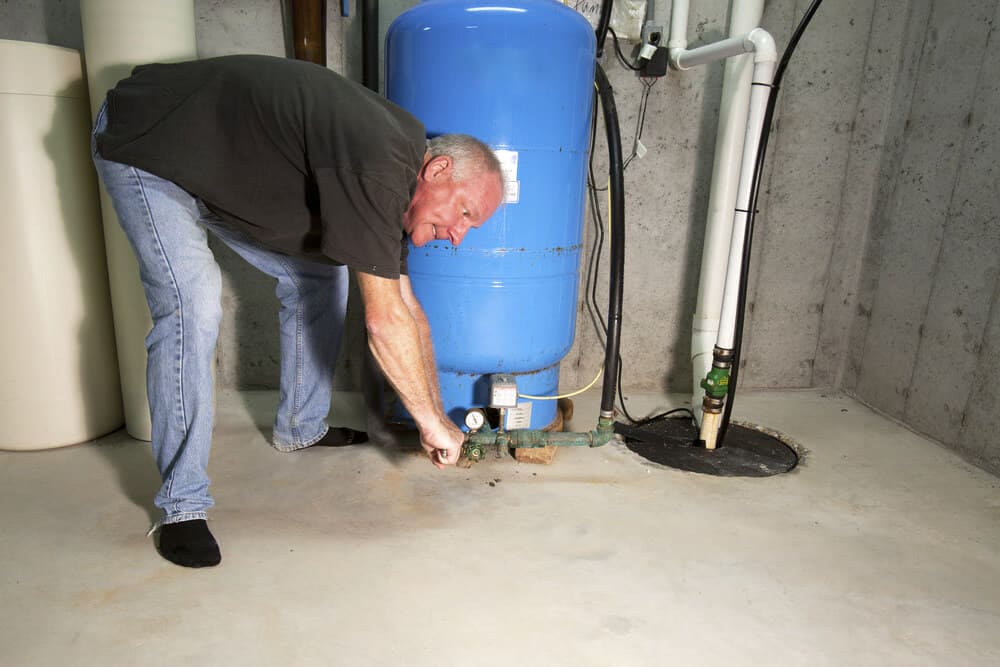Common Sump Pump Mistakes

Most basements, especially those in Midwestern homes, will get wet at some point. However, your sump pump is the difference between dampness and your belongings being destroyed by basement water damage. The sump pump pulls extra water out of your home, making it a crucial part of your basement’s waterproofing system. Proper maintenance of your sump pump is essential for keeping your home dry and avoiding expensive repairs or replacements. Here are some common mistakes to avoid.
Not Checking the Level, Valves, and Switches
Your pump level should be properly set to avoid basement water damage: higher just before wet times of the year, and lower for dry ones. Your float switch tells your pump motor to stop when the water level becomes too low. It needs to have plenty of space to float and sink freely. An obstruction can keep it from moving, which affects the rest of your pump and can ultimately burn out the motor. Also, your check valve prevents water from flowing backward into your pump. The arrow printed around the valve should be pointing away from your pump.
Not Keeping the Discharge Pipe Clear
All sump pump systems have a pipe that draws water away from the home. The discharge pipes of your basement waterproofing system should be tightly connected, drain away from your home’s foundation, and be clear of obstructions that could cause slow drainage. If you can see your discharge pipe, inspect your discharge pipe for any issues that need repairs; if you can’t because the problem is below the ground, you will need professional help. Don’t forget to take a look at the end of the discharge pipe outside of your home, and do what you can to avoid letting water back into your pump system.
Letting Debris Into the Pump
Your sump pump shouldn’t be sitting on finer debris like silt or small gravel. Smaller particles can get sucked into the pump, clog your lines, and ruin your pump’s motor. When placing your pump in the pit, try to set it on flat brick, large rocks, or at least dime-sized gravel that are less likely to get sucked up and clog your pump when you need it the most.
Not Testing Your Sump Pump
While some pumps don’t need to be tested as often because they run all the time, it’s a good idea to test them twice: once before spring, and once before fall. To test your pump, slowly pour water in the sump pit until the pump switch activates. If you notice it emptying slower than normal, you might need to check the pump or discharge pipe for issues. You can also take readings on the water meter, once at night and once the morning after. If the reading changes, it could be a sign that there’s a leak.
Not Checking the Power
Many suspected sump pump problems happen because someone unplugged the pump. It’s a relatively common mistake: basements don’t have a lot of outlets, and someone might unplug the pump if they need an outlet. This becomes a problem when they forget to plug it back in before heavy rain, which leads to basement water damage. Always make sure your pump is plugged in, and avoid unplugging it if you can.
Loose wires can make your sump pump stop working. It’s an easy fix as long as you check for it: turn off the power to your pump, disconnect it, and inspect it for loose wires that need replacing. After replacing wires, you can install the pump and restore power to see if it works again.
Not Having a Backup Plan
You need a reliable battery back-up for your sump pump. Sump pump systems are usually wired into a home’s electrical system, but some have a pressurized water system. However, a mechanical or power failure during a bad storm can lead to a basement flood and other serious foundation problems, especially if the power is out for a while. Acculevel sump pump systems come complete with a battery backup and alarm as well as an option for an advanced text alarm so you can rest easy knowing that your home is protected.
Sump Pump Options from Acculevel
When it comes to avoiding basement water damage, some work is best left to the professionals, especially if you don’t have experience installing or repairing sump pump systems. For Midwest homes, a properly-installed sump pump is a crucial part of a basement waterproofing system and a necessary part of protecting your home’s foundation. Acculevel’s foundation experts can help you find the best repair options for your basement, and all of our waterproofing systems drain into a top-of-the-line sump pump system. Contact us for a free home inspection and basement reconditioning or waterproofing estimate.
